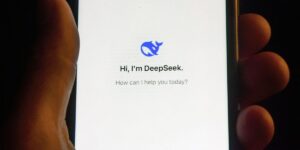New York, Texas, and Virginia Prohibit DeepSeek AI Due to Security Concerns

States Take Action Against DeepSeek
Recent actions by New York, Texas, and Virginia mark significant measures against the Chinese-owned generative artificial intelligence (AI) application, DeepSeek. These states have enacted bans on state-owned devices and networks to ensure the protection of sensitive data and critical infrastructure.
Texas Leads the Way
On January 31, 2025, Texas became the first state to prohibit the use of DeepSeek and another app, RedNote, on devices used by state employees. This decision is part of a broader strategy that also targets other applications associated with the People’s Republic of China, including Webull, Tiger Brokers, Moomoo, and Lemon8.
According to a press release from Texas Governor Greg Abbott, the state aims to prevent potential data breaches that could compromise its infrastructure. The release stated:
“Texas will not allow the Chinese Communist Party to infiltrate our state’s critical infrastructure. State agencies responsible for handling sensitive information must be shielded from espionage operations."
This proactive approach highlights Texas’s commitment to safeguarding its operations from foreign threats.
New York’s Concerns Over Foreign Surveillance
Following Texas, New York issued a similar ban on February 10, 2025, prohibiting DeepSeek from being downloaded on any devices managed by the New York State Office of Information Technology. New York Governor Kathy Hochul raised alarms about DeepSeek’s links to foreign government surveillance and its potential for data harvesting.
In her announcement, she emphasized the need for vigilance against technology that could compromise state and citizens’ security. Hochul’s statement noted:
“The decision to prevent downloads of DeepSeek is consistent with our policy to responsibly evaluate AI technologies and protect against unwanted outcomes.”
This directive indicates New York’s commitment to thoroughly assess AI applications to ensure they serve the public interest without compromising safety and privacy.
Virginia’s Executive Order
Virginia followed suit with Executive Order 26, signed on February 11, 2025, which also prohibits the use of DeepSeek on state devices and networks. The Virginia Governor articulated concerns about national security, stating that DeepSeek poses a potential threat to citizens.
The executive order specifies that employees of any state agency are barred from downloading or using the DeepSeek app on government-issued devices, including phones and laptops. The press release noted:
“This executive order is an important part of our ongoing efforts to safeguard our information from the Chinese Communist Party.”
Such measures reinforce Virginia’s stance on protecting its operations and citizens from foreign interference.
The Broader Implications of These Bans
The actions taken by Texas, New York, and Virginia are significant as they indicate a growing awareness of the risks associated with foreign-owned applications in critical sectors. By enacting these bans, these states are taking proactive steps to mitigate potential threats from data-harvesting applications that could compromise sensitive information.
This trend mirrors incidents involving other applications such as TikTok, where similar concerns about security and data privacy prompted discussions at federal levels. This experience indicates that more states could soon enact bans on DeepSeek and similar applications to protect their infrastructures.
What Can Citizens and Businesses Do?
As these states push for stricter regulations, consumers and businesses can also take responsibility by avoiding the use of DeepSeek and RedNote. Individuals should review the applications they install and be vigilant about the potential security implications of using foreign-owned apps.
In workplaces, employers can create policies that discourage or prohibit the use of these applications to mitigate risks associated with data breaches. Looking ahead, the trend suggests a collective effort to prioritize cybersecurity and protect sensitive information from foreign threats.





